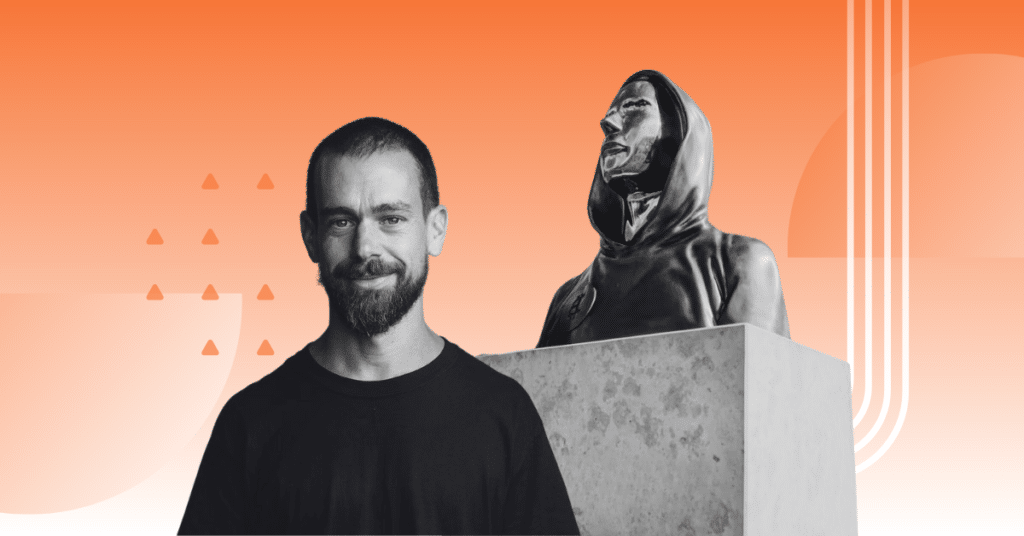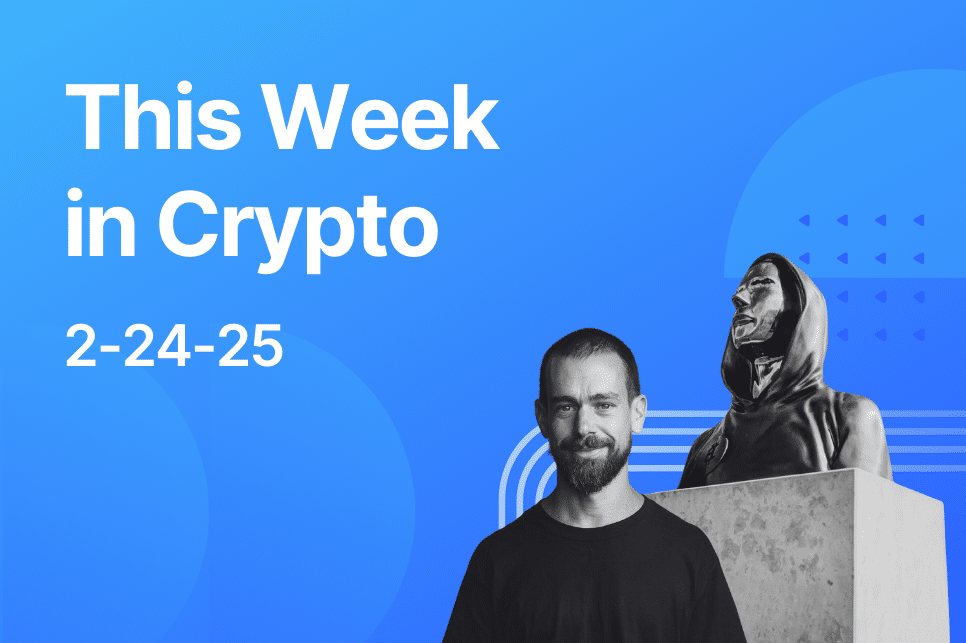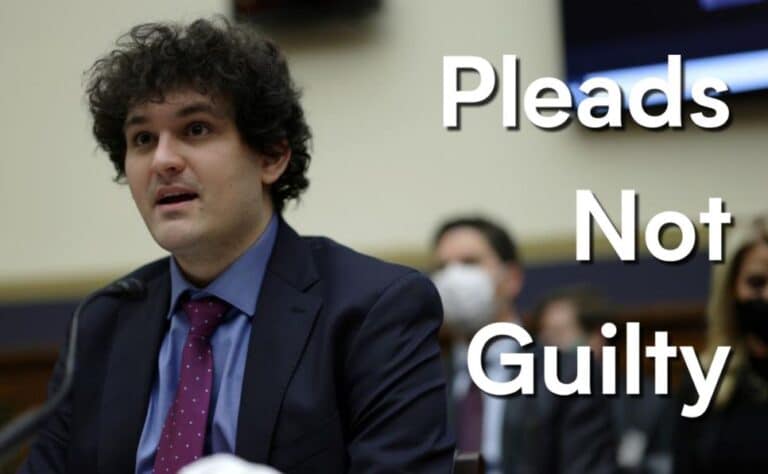Welcome to this week’s edition of This Week in Crypto, where we bring you the latest developments shaping the cryptocurrency landscape. From renewed debates over financial transparency to concerns about crypto’s shifting moral compass, here’s what you need to know.
- Jack Dorsey is at the center of a new Satoshi Nakamoto theory, as a financial journalist presents a series of connections linking him to Bitcoin’s mysterious creator.
- Calls for a Fort Knox gold audit spark Bitcoin comparisons, with Senator Rand Paul pushing for greater transparency while Bitcoin advocates highlight BTC’s verifiability.
- Vitalik Buterin criticizes crypto’s growing embrace of gambling, warning that a shift in values could impact the future of Ethereum and the industry as a whole.
Let’s dive into this week’s top stories in more detail!

Is Jack Dorsey Really Satoshi? New Theory Sparks Debate
A new theory has emerged linking Jack Dorsey, co-founder of Twitter (now X) and Square, to Bitcoin’s mysterious creator, Satoshi Nakamoto. Financial journalist Seán Murray compiled a series of connections based on dates, timestamps, and other details that he claims point to Dorsey as the mind behind Bitcoin. While the evidence has sparked debate, many in the crypto community remain unconvinced.
- One of the main claims is that Bitcoin’s first transaction and the last block mined by Satoshi coincide with Dorsey’s parents’ birthdays. Murray also points out that Satoshi allegedly joined a Bitcoin forum on Dorsey’s birthday.
- A 2014 hack of Satoshi’s email supposedly revealed a connection to St. Louis, Missouri, which is Dorsey’s hometown. Another claim suggests Satoshi logged into an online chat in 2009 from a California-based IP address, where Twitter was headquartered.
- Many in the crypto community remain skeptical of the theory, arguing that the evidence is circumstantial. Critics point out that there is no definitive proof linking Dorsey to Bitcoin’s creation.
Although the theory is gaining attention, it lacks concrete evidence, and Dorsey himself has not responded. The mystery of Satoshi Nakamoto remains unsolved, with no clear answers on Bitcoin’s true origin.
Read more about the identity of Satoshi Nakamoto

Bitcoin vs. Gold: Why BTC’s Transparency Puts Fort Knox in Question
U.S. Senator Rand Paul has called for an audit of the country’s gold reserves at Fort Knox, reigniting debate over financial transparency and trust. The reserves, which reportedly hold 147.3 million ounces of gold, have not been fully audited since 1974, fueling speculation about their true status. The cryptocurrency community has responded by highlighting Bitcoin’s transparency, with Senator Cynthia Lummis and other Bitcoin advocates arguing that Bitcoin’s verifiability makes it a superior asset to traditional gold reserves.
- Senator Rand Paul has requested that the Department of Government Efficiency (DOGE) audit Fort Knox to confirm that the U.S. Treasury’s gold reserves are intact. The call follows concerns that the reserves have remained unchecked for 50 years.
- Unlike gold, Bitcoin can be audited at any time by anyone, thanks to its blockchain technology. Advocates, including Senator Lummis, argue that Bitcoin’s open ledger eliminates the need to trust third-party auditors.
- Gold has a long history as a store of value, but issues with counterfeit gold bars have raised concerns about its reliability. Bitcoin, on the other hand, cannot be faked or counterfeited.
The push for a Fort Knox audit has sparked broader discussions about financial trust and the benefits of decentralized, verifiable assets like Bitcoin. While gold remains a traditional safe-haven asset, Bitcoin’s transparency and security continue to make it an attractive alternative.
Learn more about Bitcoin vs gold

Ethereum Co-Founder Pushes Back Against Shift Toward Gambling
Ethereum co-founder Vitalik Buterin has expressed concerns over what he calls a “moral reversal” in the crypto industry, particularly regarding criticism of Ethereum’s stance on blockchain gambling. During a Feb. 20 Ask Me Anything (AMA) session, Buterin shared his frustration that Ethereum has been labeled as “bad” for not embracing blockchain-based casinos. He suggested that the increasing acceptance of gambling within the crypto space raises ethical concerns, stating that if this shift continues, he would question his place in the industry.
- Buterin criticized the idea that Ethereum is inferior to other blockchains simply because it does not actively support gambling applications. He argued that allowing any and all applications without ethical considerations could be harmful to the ecosystem.
- Despite online criticism, Buterin said that in-person interactions with the Ethereum community have reassured him that core values remain intact. He believes the industry still has a strong foundation of principles.
- To shape Ethereum’s future, Buterin suggested that the Ethereum Foundation may need to be less neutral in deciding which applications to support, prioritizing projects that align with the blockchain’s broader vision.
While Buterin remains committed to Ethereum’s development, he urges the community to actively build the kind of blockchain ecosystem they want to see. His comments highlight an ongoing debate over ethics, decentralization, and the evolving identity of the crypto industry.



